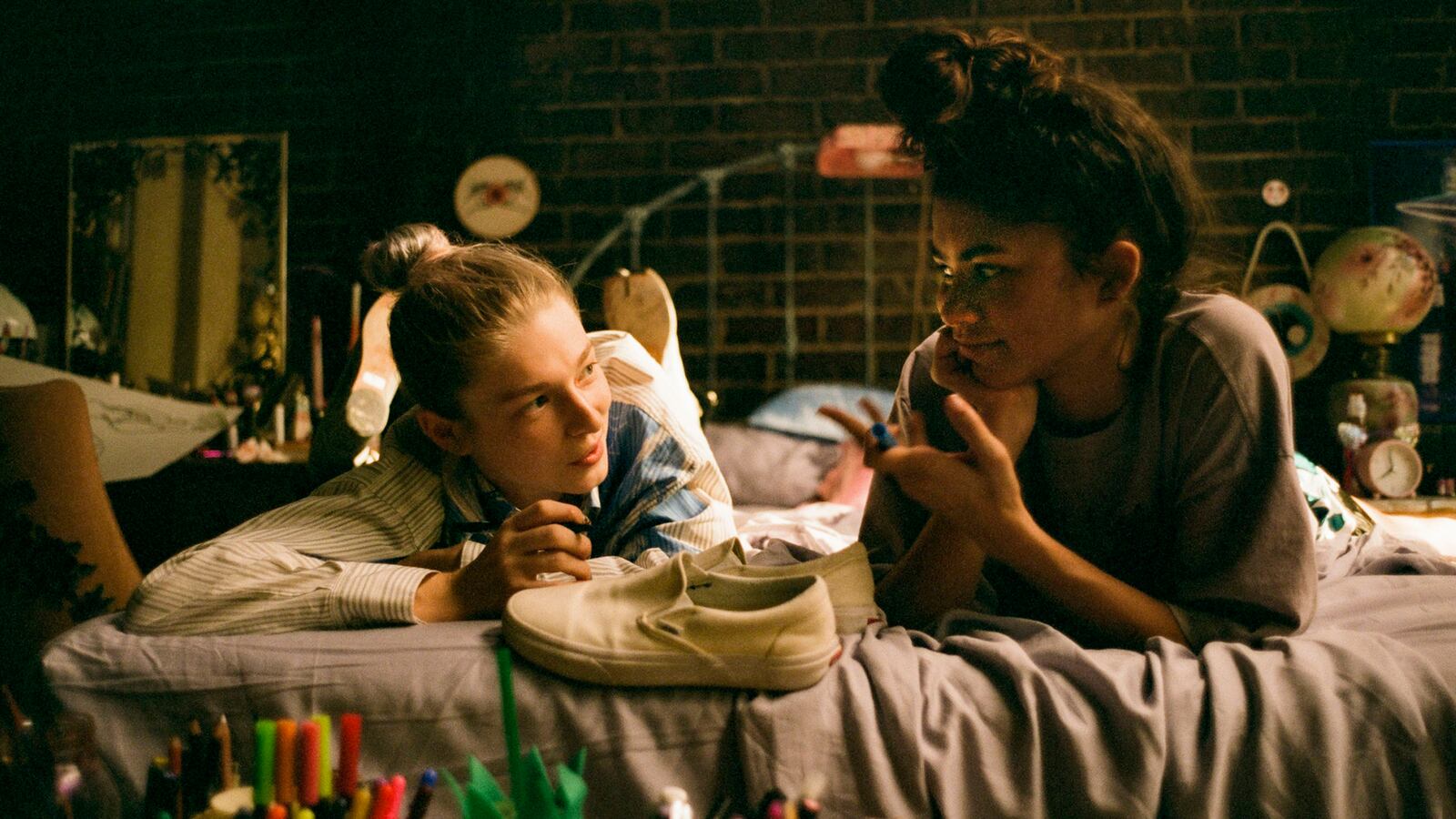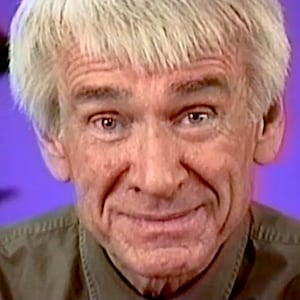There’s a certain irony to the fact that Euphoria, a series known above all for its over-the-top aesthetics, just delivered a Christmas special about two people sitting in a diner eating pancakes. After the haunting musical sequence that accompanied Rue’s relapse, it was difficult to know what would come next—both for our hoodied antihero and the series as a whole. And although the look of Friday’s special episode might feel out of character, the direction it charts is promising—and the delivery proves that despite what some detractors of the series might think, its power amounts to more than flash and glitter.
The episode opens in a fantasy: Rue relapsed after she couldn’t bring herself to run away with Jules, but for a few minutes we see what their life might have been like. As they kiss each other in bed and prepare for Jules’s presentation, crinkled noses and “I love you’s” abound. Then, as soon as Jules leaves, Rue grabs the pills she’s stashed under their bed, snorting them in the bathroom and waking up in reality. It’s Christmas Eve, and she’s at an empty diner with her sponsor, Ali. And she’s high.
But Ali is too smart to fall for Rue’s sobriety bluff. And so instead of letting her ramble about the fantastic “emotional balance” she swears she’s discovered, he demands that she digs deeper. What follows is a nearly hour-long conversation about sobriety, redemption, and above all, the struggle to believe in anything in an ugly, inscrutable world.
It’s the kind of feat that could have easily fallen flat on its face, and in the hands of less capable actors, it would have. The writing is strong but demanding—equal parts wrenching and humorous, and full of the kind of earnestness that can sound downright comical coming from the wrong performer. But both Colman Domingo and Zendaya, fresh off her Emmy win this year, are more than up to the task. As the camera presses in on their faces, each actor finds a remarkable array of micro-expressions to fill the much-needed pauses between them. And Domingo, especially, speaks with conviction so powerful that one can forgive the rare moment when the writing feels a little forced.
Ali’s message to Rue is simple at its core: Even if she doesn’t believe in God with a capital “G,” she needs to believe in something. “And it can’t be the ocean, or your favorite song, and it can’t be the movement, or the people, or the words. You’ve got to believe in the poetry. Because everything else in your life will fail you, including yourself.”
It feels fitting that Ali chooses poetry as his metaphor for a higher power. In a way, this belief feels like the heart of Euphoria—a series that, like poetry, focuses on meticulous aesthetics and (visual) metaphor to drive home truths that can at times elude plain language.
This installment and the second special, which will follow next year, were both filmed during the pandemic, so the practical reasons for this episode’s sparse setup are self-explanatory. But rather than a hindrance, these limitations have proven valuable, allowing the series to unfurl these characters in a quieter setting where all the distractions can melt away. There’s something fitting about all of it, too. As Ali tells Rue, she’s at rock bottom—or, worse, staring into an oblivion that has no bottom at all. Rue might not feel committed to getting sober just yet, but she clearly knows, deep down, that she’s in a very bad place. She’s using, but the high is no longer the escapist wonderland it used to be.
And yet, despite all this, Rue is realistically in the best place we’ve seen her in since her story began. As the old saying goes, the first step to solving a problem is admitting you have one. And although she’s done her time in NA, Rue has never been able to look deep within herself and find what that problem is. (Being a mere 17 years old definitely doesn’t help.) Now, it seems, she’s on the precipice of starting the real work.
A Euphoria special, even one released near the holidays, was never going to be a cheerful one. But as gutting as this installment certainly is, its chief takeaway is one of hope—the promise that there is redemption, if we can find it within ourselves to forgive both others and ourselves. As Rue allows herself to be vulnerable and actually open up to her sponsor, he reciprocates in kind—allowing us to get to know his own history, as someone who grew up fantasizing about his abusive father only to become one himself under the influence of drugs. But even within this episode, Ali is not defined by that history; the episode’s most bittersweet moment finds him standing in the parking lot reconnecting with one of his children on the phone. It’s awkward and strained, but Domingo hones in on the character’s joy at the connection anyway, offering the possibility that even if we can never fully repair the damage we’ve done, empathy is still possible. And when he asks Rue, after making his confession, whether she still thinks he’s a good person, we already know what her answer is going to be.


